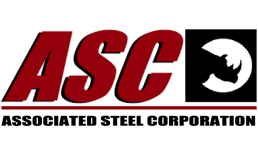You may have noticed every activity, workplace, social group, college, etc. seems to have its own language. One sure way to expose yourself as “new to the program” is to not use the approved language customary to the endeavor you are undertaking. In those cases, the dialog/language might be said to be “esoteric” (known by a certain group) to the group or business.
I remembered vividly the first time I had to call a steel source in New York. I had a hard time getting the person to understand what steel I was interested in. Finally, after a litany of clumsy attempts, he abruptly said; “Look kid, when you know what it is you want, call me back . . . dial-tone.” You don’t want to be that guy. Most institutional dialog will come with experience. This may be a small bit of help.
Steel products grouped by general type (service centers may carry multiple groups)
- Carbon and flat roll – Perhaps the biggest grouping of suppliers. Most general category covering commercial grades of mild steel, carbon steel, and often structural steel. Does not generally include alloy steel, stainless steel, and premium exotic grades of steel.
- Structural Steel – Angles, Channels, Rectangular Tube, perhaps flat bar, ductile plate products. Generally used in the building, construction, and manufacturing trades.
- Wire & Cable – Small diameter rounds, shapes and wound products, in coil form. Cold header stock used to make small production quantity parts, bolts or wire based products.
- Pipe & Tube – Long hollow products
- Long Bar Products – Round bars, flat bars, some shapes (Hex, Square, etc.). Solid Steel bars.
- Non ferrous – red metals – copper, brass, bronze. Note: “Yellow Metals” may refer to a specific type of brass, or, it may refer to an industry rather than metal type. That group involves metals used in support of heavy construction equipment; typically to that produced by Caterpillar and John Deere.
Howard Thomas, June 9th 2020
